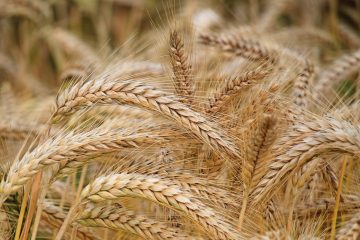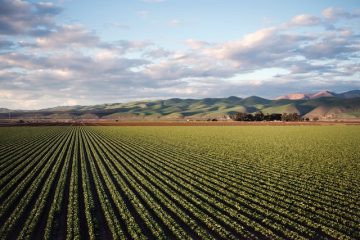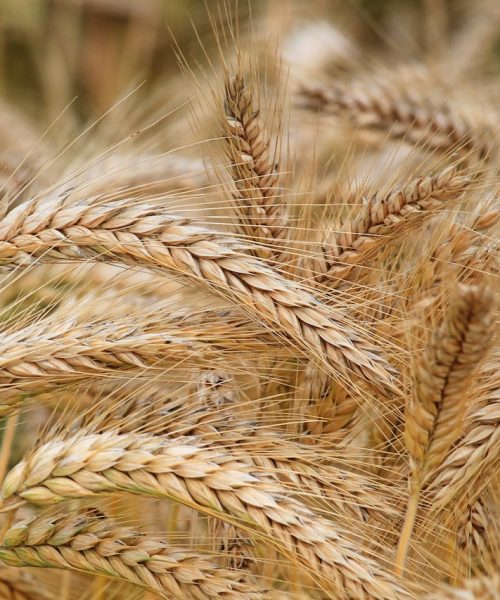Canada is a country that is home to many farmers. They contribute to our economy and to the health of the population. The Canada Revenue Agency is trying to make filing tax returns easier for farmers. Here are some benefits that farmers can receive. These benefits can be found by submitting a benefit claim.
Corporate tax rates are lower than personal tax rates
As a farmer, you can benefit from corporate tax rates that are lower than personal tax rates. If you are incorporated as a farmer, you will pay a lower rate and defer your taxes for a longer period of time. However, if you’re an individual, you may need to pay more tax.
A farmer’s business must meet the rules outlined by the federal government. In order to qualify, it must have an annual taxable income of less than $10 million. Once the taxable income of a farm reaches $15 million, the business is no longer eligible for the 12.5 percent rate. However, most farms will not reach that threshold. As long as they have passive income, they can continue to benefit from lower rates.
In addition to this, Canada also has an excellent property tax system, which allows companies to minimize the impact of property taxes. Canada’s system is better than the U.S.’s, as it exempts many business inputs. Businesses, including Burger King, pay less in sales taxes than in the U.S., but property taxes are more significant. For example, a farmer in Canada pays a much lower tax rate on his farm than he would in the U.S.
For a farmer in Ontario, the new small business tax rate applies to farms that generate less than $500,000. This tax rate is better for smaller farmers, which means they can spend more money on their business. Farmers in Ontario can also benefit from a new tax system, called the Harmonized Sales Tax (HST). The HST is a government tax that replaced the Retail Sales Tax (RST) on July 1, 2010. The federal portion is 5%, and the Ontario portion is 8%. The combined rate is 13 percent. This tax is administered by the Canada Revenue Agency.
Capital cost allowance (CCA) rules
If you are a farmer, you should know about the capital cost allowance rules. These rules allow farmers to claim a percentage of the cost of qualifying capital depreciable property (CDP) on their income tax returns. There are different rates for different types of capital assets. For example, a Class 10 tractor would normally have a CCA rate of 30 percent.
Farmers can use CCA to offset the cost of buying energy producing capital assets for farming. But they should be aware that they have to use these assets over time to generate income. The amount of the deduction they can claim depends on the type of property and the date of acquisition. As of today, farmers can claim 30% or 50% of their eligible costs.
Another change in the CCA rules is the introduction of a new category called Canadian-controlled private corporations (CCPCs). These CCPCs will be able to deduct the full cost of their capital assets when they file their income tax returns. However, the regulations are not final, and the government is still reviewing the proposal.
The calculation of CCA is complex, and involves meticulous record keeping. It is important to consult with a tax professional if you plan to deduct your entire CCA in a single year.
Drought and excessive moisture tax measures
A new government program has been introduced in Canada to help farmers with their transportation costs. The government has launched a program called the Agricultural Transportation Benefits Corporation (ATBC), which pays farmers $0.015 per pound of carcass weight for loss of production. The program was announced in the fall of 1996. It also provides compensation for damage to haystacks and commercial crops.
The government of Canada is also considering additional measures to help farmers coping with the drought. The government has begun collaborating with the provinces to collect information and assess the extraordinary costs faced by farmers. These measures could include direct assistance in the form of livestock feed, transportation, and water infrastructure.
The government has announced an initial list of designated regions where drought and excess moisture have hit hardest. Those farmers in those regions are eligible for the Livestock Tax Deferral. This new measure will help farmers offset their taxes by reducing the costs of replacing their herd. The government is also planning to expand the program to include more areas.
In addition to implementing the new drought tax, the government is also developing a pilot program to develop a comprehensive adverse event plan and strengthen local capacity to cope with chronic stress. The program is currently under evaluation, but the findings could help inform the national program. The program can help farmers and agricultural-related businesses by providing free financial counseling.
Land transfer tax exemption
Farmers in Canada can take advantage of a land transfer tax exemption if the land was used for farming. This exemption is applicable to transfers of farm property between spouses. It also applies to transfers of farm machinery, shares of a family farm corporation or partnership interest. However, the definition of farm property is not exhaustive.
This tax is paid by the buyer of land. In Canada, this tax is calculated as a percentage of the land’s value. The tax rate varies by province, which is why it is important to find out the applicable rates in your area. For example, if you’re a first-time home buyer in Ontario, you may be eligible to receive a $4,000 land transfer tax rebate.
Alternatively, you can transfer your farm directly to family members through a family farm corporation. The shareholders must be qualifying family members. If you’re a farmer, you should contact your accountant to get the necessary documents and documentation. You should also provide them with proof of your farming activities and records for one or two years before and after the land transfer.
When transferring farmland to children, a farmer may benefit from a land transfer tax exemption. This is similar to transferring farmland to a spouse, but the tax implications are slightly different. The child must be a Canadian resident.
Capital gains exemption
The Capital Gains Exemption (CGE) for farmers is a welcome tax break. Generally, if you sell your farm, you’ll be able to claim $1 million in the exemption at the time of sale. However, the exemption does not keep up with the increasing cost of running a farm. For that reason, it’s important that the CGE for farmers to be indexed.
To be eligible for this deduction, you must own and use a qualifying farm property in Canada. The property must have been used in a farming business for at least five years. Moreover, it must have been acquired before June 18, 1987. In addition, the farm property must be used in a principal farming business in Canada.
Unlike the CGE for homeowners, a farm’s CGE can be passed down in generations. If a farm is inherited, it may qualify for the exemption. However, the farm’s gross revenue must be more than the owner’s other sources of income. In some cases, the farm property must be rented for at least two years.
A corporation can also qualify for the CGA if it’s owned by a farmer. While it’s possible to access the exemption on a transfer from a personal to a corporation, it’s not possible to use it on a sale to the corporation itself. Incorporation doesn’t make sense for every farm, however, because the benefits are dependent on the amount of income the farm generates.
Return of Fuel Charge Proceeds to Farmers Tax Credit
The Return of the fuel charge proceeds to farmers’ tax credit is a tax credit for farmers. This credit is available to eligible farmers who charge their customers a certain amount of fuel for their vehicles. This credit is located on lines 47556 of Form T1. The return of the fuel charge proceeds to farmers’ tax credit must be recalculated manually.
The government introduced the Return of Fuel Charge Proceeds to Farmers Tax credit to help farmers offset the high cost of the carbon tax. The credit will be available for farms in Ontario, Manitoba, Saskatchewan, and Alberta for tax years 2021 and 2022. It will apply to farm businesses with total farming expenses of $25 000 or more. In addition, the expenses must be incurred in the designated provinces.
The tax credit may be claimed retroactively. The tax credit is worth $500 to $1,500 depending on the size of the farm. Individuals must file a T1 or T2 adjustment form for the 2021 taxation year. It is recommended to speak with your accountant about the details of your return.





























